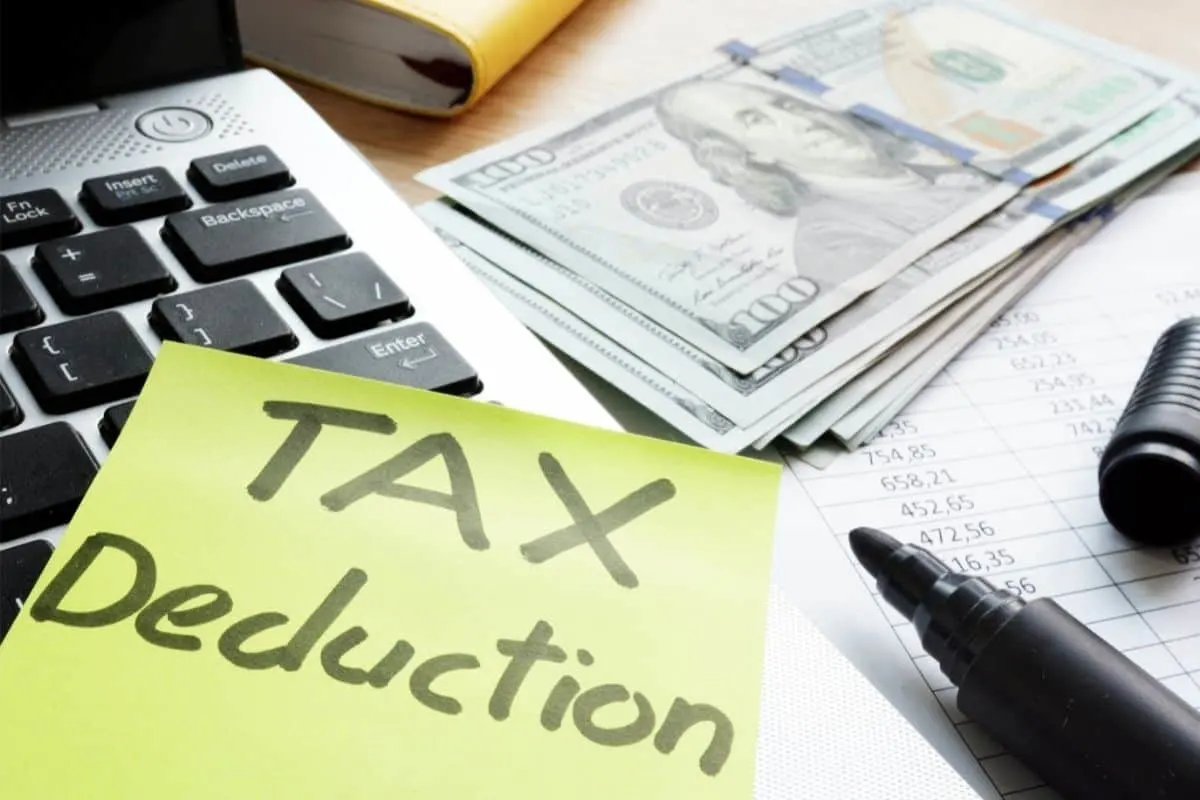You’ve recently purchased a property, and you pay monthly Homeowner’s Association (HOA) fees. You’re already thinking about tax season and wondering if the HOA fees you pay are tax-deductible.
Unfortunately, the answer isn’t a straightforward one. The quick answer to the question are HOA fees tax-deductible is: it depends…
There are some situations where HOA fees are tax-deductible and other cases where they aren’t. If you are paying HOA fees, it’s your responsibility to learn what your tax obligations are.
When in doubt, you should always consult a tax professional for official guidance. However, here are the four most common scenarios where I have found HOA fees to be tax-deductible.
Four Scenarios Where HOA Fees Are Tax Deductible
Since the answer is it depends. The response leads to another question, and that question is: when can you deduct HOA fees?
There are four different situations where you can deduct HOA fees. Continue reading to see if your case is one of them.
After reading the information below, I strongly advise you to speak with a tax expert if you’re still unsure.
#1 Home Office for a Trade of Business
If you own your home and have an office where you conduct business in that property, you can deduct a portion of your HOA fees.
The IRS determines the amount of the HOA fees you can claim for a home office based on the percentage of space the office takes up in your home.
For example, if you say that your office takes up 20% of the space in your home, you can claim 20% of the HOA fees paid.
You’ll need to identify where the office space is clearly, so if you’re working from your laptop on your bed or sitting at the kitchen table, this won’t count as office space.
You should note that there are two ways that the Internal Revenue Service (IRS) determines eligible home office expenses.
Self-employed: If you are self-employed and have a home office used for business 100% of the time, you can claim the percentage of your HOA fees that corresponds with the size of your home office as a home office expense.
Remote office: If you are using your home office as a remote office for your job, it needs to pass the convenience of the employer test. You have to prove that the office in your home is for the convenience of your employer.
You cannot receive compensation from the employer for the use of the home office. What that means is that they’re not paying you to rent the space.
Suppose you rent your basement or a room in your home for additional income.
In that case, you can claim the HOA fees in the same manner as if you were using the space to operate a business, which means that you’ll have to determine what percentage of the area the basement or room is of the entire house and claim the HOA fees accordingly.
Another situation where you can claim space for business use is if you are using space in your home to store inventory. The percentage you can claim will be the same as the office space, based on the portion of the home being used to hold stock.
You will need to check with a tax expert to make sure you meet IRS qualifications regarding whether you’re in a retail or wholesale business, and whether there are no other business locations aside from your home.
#2 The Home is a Rental Property
If you purchased a home that you plan to use or are already using as a rental property, you can deduct the total amount of HOA fees as a rental property maintenance expense.
Simple enough!
#3 The home is a Rental Property Seasonally
If you have a property that you use for parts of the year as your primary residence, and the rest of the year you rent it out, you can claim a portion of the HOA fees when you file your taxes.
How much of the HOA fees you can claim will be determined based on the amount of time you used the property as a rental unit.
Fees paid while you were using the home for personal use will be exempt from being used for tax deductions.
#4 You Rent Your Home
If you’re not the property owner and are paying HOA fees as a tenant, you can claim the fees that you pay.
You can claim the HOA fees as a tax deduction because the costs are an expense you have to incur to maintain the property, even though you aren’t the owner.
How to Deduct HOA Fees on Your Taxes
To claim your HOA fees on your taxes, you’ll need to complete a Schedule E (form 1040).
Whether you’re filing your taxes using printed documents or filing your taxes online, you’ll be looking for the line that asks for the amount spent on Rental Property Maintenance.
Frequently Asked Questions
Now that you have a basic understanding of how and when HOA fees are tax-deductible, you might have a few other questions.
Here are some of the most common ones and their answers!
Are HOA fees deductible on Schedule E?
Since the IRS considers HOA fees a deductible expense of maintaining a rental property, they are deductible on a Schedule E form. This document is also known as form 1040.
If you’re filing your taxes using tax filing software, you will enter the amount paid in HOA fees where they ask for rental property maintenance.
Full-time real estate agents won’t use a Schedule E to claim HOA fees paid. For full-time real estate agents, the correct form to use is a Schedule C.
Can you deduct HOA fees from capital gains?
No, you cannot deduct HOA fees from capital gains. If the HOA does a special assessment for maintenance and repairs, you can claim the HOA fees paid. If the special assessment is for improvements, you cannot deduct them from capital gains.
For example, if you purchased a home for $350,000 and paid $10,000 in maintenance fees while owning the property and sold it for $355,000, you would claim a $5,000 capital loss.
While you can’t deduct HOA fees from capital gains, you should know that if you manage your property yourself and end up at a loss at the end of the year, you can deduct up to $25,000 in losses from other income.
If you had more than a $25,000 loss, you can carry over the remainder into the following year. If you hire someone else to manage the property, you can carry over all losses.
Are HOA fees deductible for a home office?
Yes, HOA fees are deductible for home offices. Before claiming your HOA fees, you will have to determine how much space your home office takes up in your house. Once you figure out the percentage, you’ll use that number to deduct your HOA fees.
You’ll want to take pictures of your workspace; you want to prepare yourself in case the IRS requests to see proof that you do have an office set up in your home.
Remember, you need to have a specific area designated as your workspace. Your bed, the couch, or your kitchen table won’t suffice as an office space.
Are HOA fees deductible on a second home?
Yes, HOA fees are deductible on a home you don’t live in that you use as a rental property.
If the second home is a vacation property where you reside in it some of the time, you’ll have to determine what percentage of time you are using the home as a rental property and claim the HOA fees based on the period you collected rent.
You should know that if you have a second home, any time that you have let guests stay without charging them is considered personal use. Any time that you used the home for personal use is exempt from being tax-deductible.
If this is a common situation for the second home, it may be helpful to find a way to track that time, so you have a backup to show at tax time.
Are HOA fees deductible in California?
Based on my research, I’ve found that the rules around HOA fees are the same in California as in other states. You cannot deduct HOA fees unless you have a dedicated home office space if you live in the home. The way to determine how much you can claim also remains the same.
Are Condo fees the same as HOA fees?
While Condo fees and Homeowner fees go to organizations structured differently, the IRS treats both expenses the same way regarding how the IRS views them for tax purposes.
You cannot deduct the condo fees paid if you live in the property unless you run a business from your home and have a designated office space.
You can find other circumstances where you can use condo fees as a tax deduction above, where I discuss the four scenarios where HOA fees are tax-deductible. At the risk of sounding like a broken record, when in doubt, seek the advice of a tax professional.


